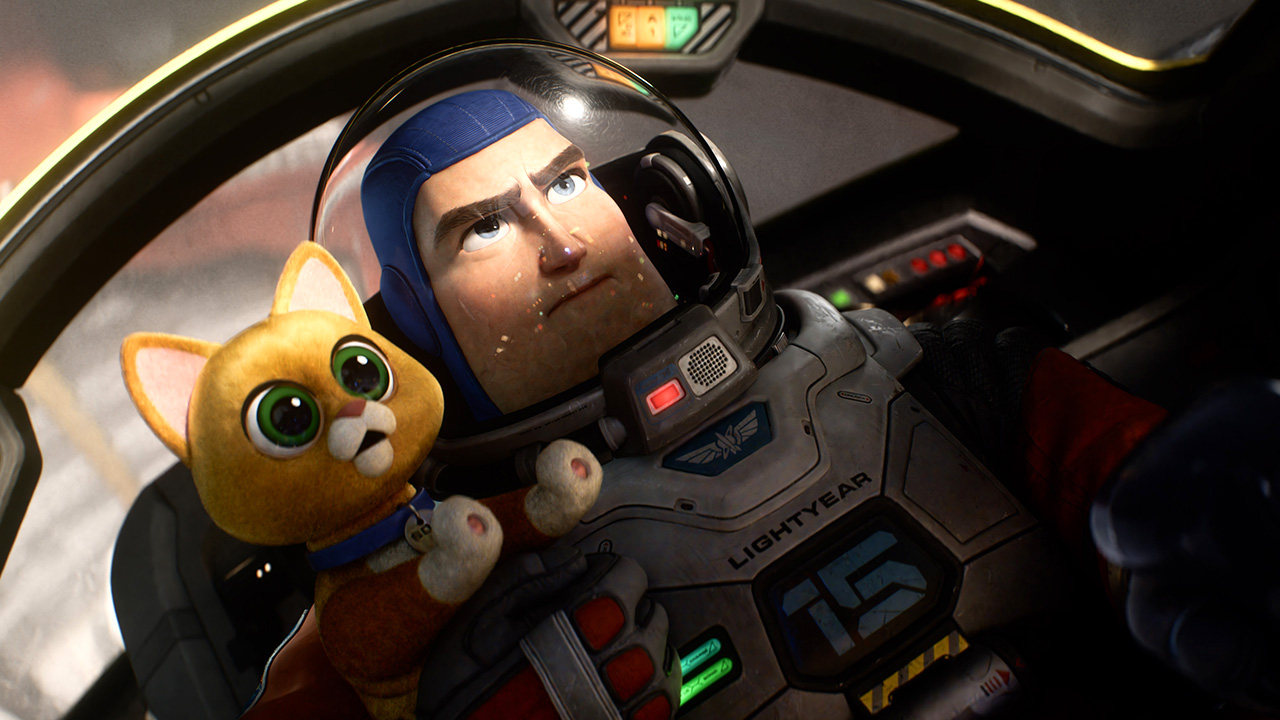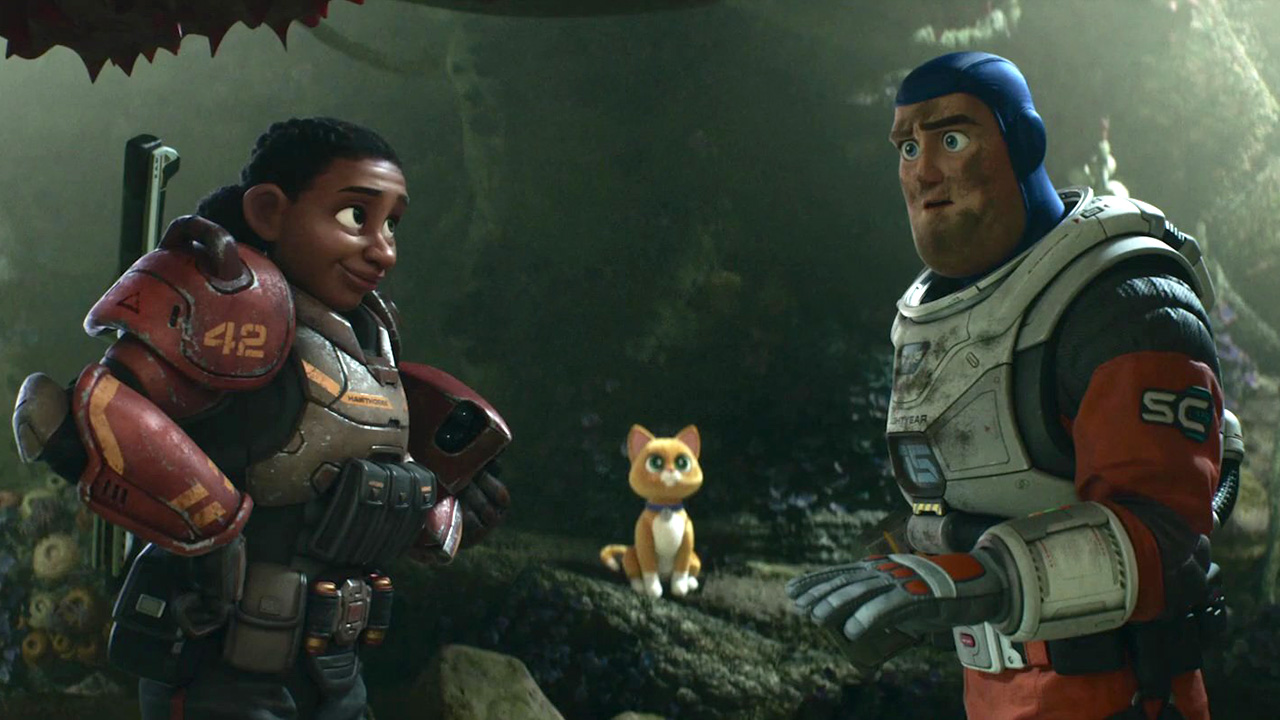Pixar’s promising Lightyear quickly nosedives into disappointment

Lightyear places the popular Toy Story action figure at the centre of his own movie with this Pixar sci-fi blockbuster. While it’s often entertaining and gets off to a promising start, Liam Maguren found the whole thing to be a big disappointment.
Pixar isn’t obliged to make parents cry in front of their children, but they’ve done it so well so many times that we’ve come to expect a blubber-fest with every film they release. Lightyear, the film that supposedly inspired the Toy Story action figure, isn’t trying to be that. It wants to be an unforgettable sci-fi blockbuster for the whole family, and that’s a worthwhile target to aim for. Unfortunately, while this film hits the board, it’s nowhere close to a bullseye.
The story centres on one big blunder: Buzz’s failed attempt to pilot a ship full of people away from a hostile creature ends up trapping them on its home planet. As the colony settles in and devises a new way to get out, the film introduces a bunch of concepts adults have seen in recent sci-fi blockbusters like Interstellar and The Martian but told swiftly for audiences of all ages. We also witness one of the film’s most touching relationships play out between Buzz and Alisha Hawthorne (Uzo Aduba), a fellow space ranger whose marriage to another woman is played to the pitch-perfect tone of: “yes, this is natural and no big deal.”
It’s a very promising start, setting up themes of owning your mistakes while building upon the inner workings of this makeshift civilisation. Unfortunately, the story quickly nosedives away from all this, choosing to proceed with a men-on-a-mission plot revolving around some single-note characters traversing a rather boring planet.
Buzz soon runs into another Hawthorne, Izzy (Keke Palmer), who’s struggling to live up to the family name. There’s also Darby (Dale Soules), an elderly brute, and Mo (Taika Waititi), a complete coward, who all get passable gags and a moment to shine. However, the story doesn’t give these characters enough time to build a rapport with each other, which hampers our attachment to these troopers and undercooks the take-home message of teamwork making the dream work. The only thing more rushed is the film’s treatment of Emperor Zurg (James Brolin).

This is also one of Pixar’s least visually artistic efforts. After the studio’s daring style choices with Luca, Soul and Turning Red, Lightyear feels like a creative leap backwards with design decisions clearly mimicking Star Wars and planet landscapes amounting to nothing more than an uninteresting mush of barren rock and barren mangroves.
It all makes Lightyear a disappointing experience, though not a disaster. Chris Evans proves a worthy choice as the voice of Buzz, texturing the character’s internal fight with self-esteem and self-doubt. His psyche is probed superbly by the film’s standout comedy relief, emotional support robot Sox (Peter Sohn), who gets all the solid gold gags in the film. The pair are damn funny together, but they also develop a genuine bond. I write the following with no irony: the film’s other most touching relationship is between this man and his cat.
Despite the limp art direction, the animation remains top-tier Pixar with character performances running the gamut between big emotive sequences and more nuanced, humane moments. The action scenes are also done effectively, the most memorable one being a kinetic space escape sequence that justifies the film’s existence on the big screen. (It might be the only thing justifying its big-screen release if I’m being brutally honest.)

The film ends with the kind of post-credits stinger that will amuse those who unintentionally stumble upon it but will annoy the daylights out of anyone expecting something more. At least you can avoid it, unlike the completely needless intro explaining how Lightyear was the film Andy from Toy Story watched in the ’90s.
Not only does this extremely basic intro text feel like a last-minute add-on by the marketing department, but it also forces a universe tie-in that makes very little sense. If Disney/Pixar really wanted a TSCU, we would have seen the very profitable Sox merch in the Toy Story franchise at some point, and if we’re meant to believe child Andy saw this film 30 years ago, then the inclusion of a prominent Black queer woman in a family blockbuster gives ’90s Hollywood way too much credit.
Yes, I’m nitpicking, but that opening text felt like an opened box of nits being dumped on this film’s scalp. The biggest nit of them all, sadly, is the idea that a forgettable film like Lightyear would go on to generate so much publicity for a toy like Buzz.



















